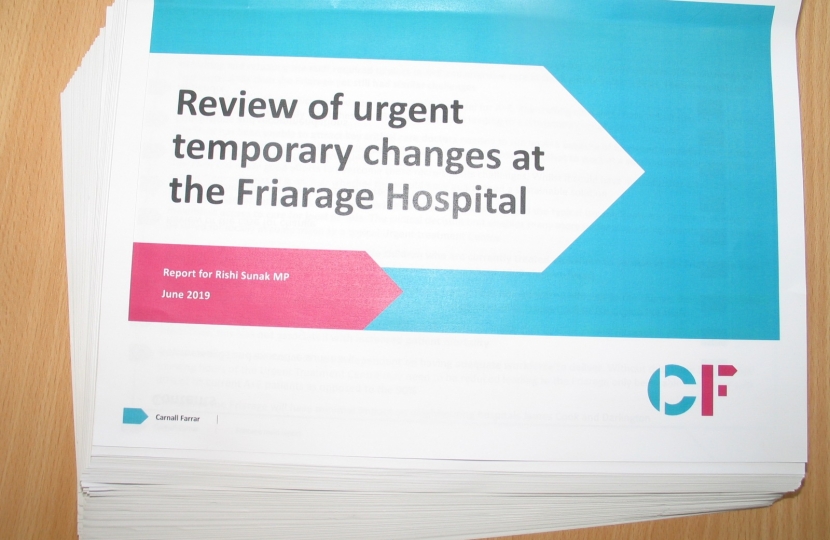
I very much welcome the opening of the consultation into the changes to emergency services at our much valued and loved local hospital - the Friarage.
It is, of course, disappointing that we are in this position but what we have learned over the last few months is that the old A&E department was not sustainable because of the difficulties the hospital managers had in recruiting the specialist doctors required to run it safely.
The reasons why are many but they include the hospital’s size (the smallest A&E in England), increased specialisation, and improved clinical standards.
I can make these points with confidence because I drew on independent expertise to get to the bottom of the issue facing the Friarage. The extensive report I personally commissioned from healthcare consultants Carnall Farrar gave me the evidence and data to effectively scrutinise what the managers and doctors were telling me and you about the Friarage.
The report said the recruitment difficulties were very real and shared by other small hospitals around the country and overseas. Indeed, the situation here is by no means unique and one of the most important findings in the report was that the Friarage is the smallest full service A&E department in England and even much larger hospitals in England have had to make to changes to their A&E provision as a result of the national changes in doctor specialisation and clinical standards.
Further, the situation was unlikely to change in the short term. While it is clear the South Tees Trust (which runs the Friarage) might have done better recruiting from overseas in the past, it was unlikely that it would have guaranteed a sustainable future for the A&E department and would only have been a temporary fix. This view was confirmed by a specialist doctors recruitment agency I spoke to – and recommended to the Trust to help in its quest to fill the doctor vacancies.
This is why the consultation exercise offers two options – a 24/7 urgent treatment centre (UTC) or a 16/7 (8am-midnight) UTC.
It is not possible to go back to the old A&E arrangements because the Trust cannot compel these particular types of specialist doctors to work at the Friarage, the clinical standards do not in practice support them doing so, and therefore the Trust cannot run a safe department. Substantial financial incentives (which I obtained clearance for from the Health Minister back in 2017) have been offered but have also failed.
I will be pressing for the currently operating 24/7 UTC to be maintained. By all accounts it has worked well since the changes were made back in March. More than nine out of ten patients who would previously attended A&E have continued to be treated at the Friarage.
And most importantly there has been no compromising of clinical safety. Patients needing emergency treatment have received it safely and promptly.
There has also been a benefit from the UTC meeting national clinical guidelines for such a centre which has meant almost 40 per cent more children have received treatment at the Friarage than before March.
Carnall Farrar’s view is that the enhanced UTC with a consultant-run clinical decisions unit now operating maximises access to care for local people and could become the benchmark for small rural hospitals like the Friarage.
I support that view but with the caveat that the centre should continue to operate on a 24/7 basis. I shall be making that point very clear in my submission to the consultation. I hope as many of you will make your views known too over the next three months.
Furthermore, I shall be pressing the Trust to ensure this new model is completely sustainable as they have said it will be. We simply can’t be revisiting this again in the future. The Trust should be highly focused on ensuring we have a strong supply of the specific doctors and specialist nurses required to run the new UTC, and ensure our current staff are protected.
And in the long run, action has been taken to increase the number of medical training places which should help with this. In 2017 I successfully pressed the case for the Hull York Medical School to expand the number of doctor training places from 130 that year to 260 in 2019. A similar expansion has taken place at Newcastle and Sunderland Universities and the new medical students will spend time during their training at the Friarage and are thus more likely to consider careers here.
Given the time it takes to train doctors, this does not solve the immediate recruitment issue but it bodes well for the future of our local hospital.
